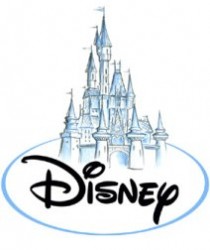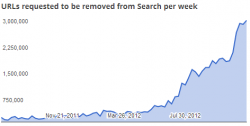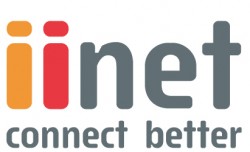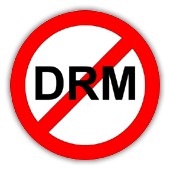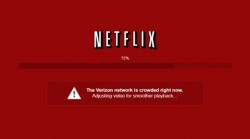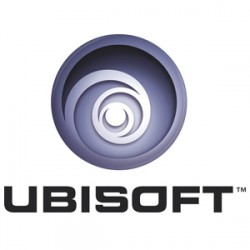Last week’s scheduled post seemed to have work, and I shall have to employ this feature again for this week. It’s nice to be able to finish work on Saturday and get the Sunday off (even better if I didn’t have to work on Saturday!).
Let’s get started …
![]()
A victory for consumers this week, even if it may be a temporary one – phone unlocking is now legal again. Previously an exemption from current copyright laws, phone unlocking became illegal when the US Copyright Office allowed the exemption to expire in early 2013 due to industry pressure. This week, a new bill was signed into law by President Obama which adds back the exemption, and calls on the US Copyright Office to examine expanding the same exemption to other devices, such as tablets. The new law will make phone unlocking via third parties legal again, at least until when the Copyright Office re-examines the issue in early 2015.
The new law is a blow to wireless operators, who had put pressure on the Copyright Office to allow this exemption to expire. Instead, operators preferred an unlocking processes designed and operated by themselves, which often involved a slow and arduous process designed to make it more difficult for subscribers to change providers. The new changes will benefit consumers by providing them with more choices, and making the wireless marketplace more competitive in the process.
Now all we need is a new bill that makes DVD and Blu-ray ripping legal for personal use, and then we’re all set. Don’t hold your breath though.
Speaking of unwanted DRM, here’s another example of the problem with DRM, not just for consumers but for publishers that choose to implement them. Because Scholastic wants to switch to a different pricing model for its Storia range, those that had previously purchased the DRM’d Storia books will now lose access to their books. Users can extend access to their “purchases” by opening the eBook before October 15, otherwise they will have to contact Scholastic to obtain a refund. It’s nice and all for Scholastic to offer a full refund, and it’s definitely the right thing to do in this situation, but it’s by no means an obligation for them, in the legal sense. They could have simply gave an advanced notice of the end of access and washed their hands of it, and the user agreement consumers entered into probably would have allowed Scholastic to do exactly this without any ramifications. This is why DRM is dangerous and why it’s anti-consumer, even if Scholastic has done the absolute right thing this time around.
![]()
Amazon seems to be acting quite the d**khead these days (in my humble opinion … please don’t sue me). They’re so big and powerful these days, and have such a large say in sales of books (and DVDs and Blu-rays), so even if they have some valid points to make on the whole dispute with book publishers Hachette (here’s a rundown, if you’re not quite sure what’s going on), it’s hard to see it as not being a case of the big boys bullying the (relatively) smaller guys (the smaller guy in this case being Hachette, the corporation with “only” 7,000 employees).
You can’t really call Disney one of the smaller guys (nor Warner Bros.), but it seems Amazon isn’t afraid to pick on them either, not when they know that Disney needs Amazon more than Amazon needs Disney. So a dispute over a distribution deal means that almost all Disney DVDs and Blu-rays have been removed from pre-order, including ‘Muppets Most Wanted’, which actually comes out next week. They did the same with Warner Bros. back in June before, I assume, Warner relented and gave in to their demands. Disney will have to make similar compromises soon, I suspect.
Obviously Amazon has a right to determine what is and isn’t for sale, but it’s hard to not see this as case of a company abusing its market position to get what it wants.
Amazon has such a large presence that even a relatively limited blockade such as this one, or the one against Warner Bros., could have an effect on disc sales. Whether that’s reflected in the latest home entertainment sales report, it’s hard to say, but the report itself paints a rather familiar pictures. Blu-ray is up, DVD is down to bring total disc revenue down as well, but digital continues to grow (and oh, brick-and-mortar rental sales continues to plummet).
The latest figures from DEG shows that while Blu-ray is up 10% in the second quarter of 2014, combined disc sales (including both DVD and Blu-ray) was down 8.2% in the first half of 2014 compared to the same half in 2013. This is all while electronic sellthroughs (eg. iTunes) and SVOD (eg. Netflix) grew 37% and 26% respectively.
Overall, for the first half of 2014, disc sales revenue fell to $3.26 billion, while digital sales (including electronic sellthroughs, SVOD and a la carte VOD) grew to $3.6 billion. This may or may not be the first time that digital revenue exceeded that for discs, and things may turn around during the second half of the year (when disc sales traditionally do better than the first half), but the trend is clear to see.
On a related note, Netflix this week announced that they have just surpassed HBO’s subscriber revenue. Competition between Netflix and HBO has been growing, particularly with the former now in Emmy contention season after season. But as Netflix’s CEO points out, “They (HBO) still kick our ass in profits and Emmy’s, but we are making progress.”
![]()
Is the Xbox One about to get another $50 price cut? Earlier in the week, the Spanish version of the Xbox.com seems to have indicated that the Xbox One would now be priced at €349.99, another discount of €50 on top of the recent price cut. A “#xboxgamescom” hashtag was present, indicating that Microsoft might have a surprise price cut announcement at Gamescom, happening next week. Hopes were soon dashed though, as Microsoft later confirmed that the listing was made “in error”. It’s a good thing that I was too lazy to post the original news story, and that by the time I finally got around to it, the “correction” had already been made. Hooray for laziness!
——
And on that note (laziness), we come to the end of this WNR. Hope you’ve enjoyed this one, see you next time.


